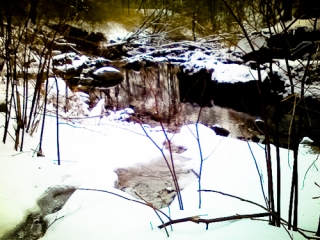Passion, meaning, engagement, flow, now . . .
These were some of the themes I highlighted in my last post. I wonder if all or any of these are part of the essential stuff of joy?
Passion – I think there must be a kind of passion inherent in joy; that sense of intensity, what else can we call it? But I also sense that, with age, perhaps we develop an awareness of different shadings of passion.
In the context of loving partnerships we draw a distinction between the initial fire of romantic love and the deeper rootedness of enduring love. Some class only the first as ‘passion’. It seems to me limiting to see only ‘fire’ as passion. There is just as much intensity in the depths of a still pool. Joy is inherent in both.
If I define passion in this way, then I believe it is indeed an ingredient in the experience of joy. However, I am not at this point clear whether the relationship is as cause or effect.
Meaning – It seems to me that those experiences that people cite as bringing them joy invariably carry a deep personal significance. These include the great ‘human’ events, such as falling in love, marriage, birth. They include specific relationships – with partners, with children, with friends, with pets. Then there is the response to nature and natural beauty, to the arts, or to religious experience
We respond to those things we find ‘meaning-full’ in some way. However, when I look at all of these, what strikes me is that what underlies our joyful response is a sense of connection beyond ourselves to another being – human, animal or divine – or to nature and/or the universe.
So my question her is, is what is important connection and does our perception of meaning first require a sense of connection? In a world that is, superficially, increasingly connected yet in which at a deeper level there is anomie and rootlessness, this would explain the lack of a clear sense of and capacity for joy.
Engagement, flow and ‘nowness’ – I think it is almost impossible to experience joy unless you are fully present. Therefore it this trio seem increasingly to be pre-conditions for cultivating a capacity for joy.

